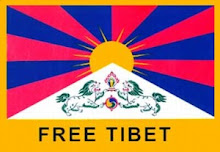 «The ancient music of the Middle East has been given a modern twist by Iraq-born and Paris-based oud (lute) and oboe player and vocalist Fawzy Al-Aiedy. Affectionately known as the "Sultan of swing," Al-Aiedy continues to bridge the traditional music of the East and the improvised sensibility of the West. Hailing from the Iraqi harbor city of Bassorah, Al-Aiedy studied violin and singing at the age of 14. His dreams of studying music abroad seemed to dissolve after the Ba'ath took control of Iraq and issued an edict prohibiting Iraqi citizens from leaving the country. Pleading to Saddam Hussein for permission to leave, he instead found himself drafted into the Iraqi army. After three months of basic training, he was transferred to the military's music division. Allowed to travel to Europe in 1971, Al-Aiedy settled in Paris and began to study the oboe. He released his debut album, Silence, five years later. His subsequent releases have focused on interpreting the music of the era depicted in the book 1001 Arabian Nights. While most of his albums have been directed at a general audience, Al-Aiedy has recorded several albums for children.» (AMG)
«The ancient music of the Middle East has been given a modern twist by Iraq-born and Paris-based oud (lute) and oboe player and vocalist Fawzy Al-Aiedy. Affectionately known as the "Sultan of swing," Al-Aiedy continues to bridge the traditional music of the East and the improvised sensibility of the West. Hailing from the Iraqi harbor city of Bassorah, Al-Aiedy studied violin and singing at the age of 14. His dreams of studying music abroad seemed to dissolve after the Ba'ath took control of Iraq and issued an edict prohibiting Iraqi citizens from leaving the country. Pleading to Saddam Hussein for permission to leave, he instead found himself drafted into the Iraqi army. After three months of basic training, he was transferred to the military's music division. Allowed to travel to Europe in 1971, Al-Aiedy settled in Paris and began to study the oboe. He released his debut album, Silence, five years later. His subsequent releases have focused on interpreting the music of the era depicted in the book 1001 Arabian Nights. While most of his albums have been directed at a general audience, Al-Aiedy has recorded several albums for children.» (AMG)Link in comments














